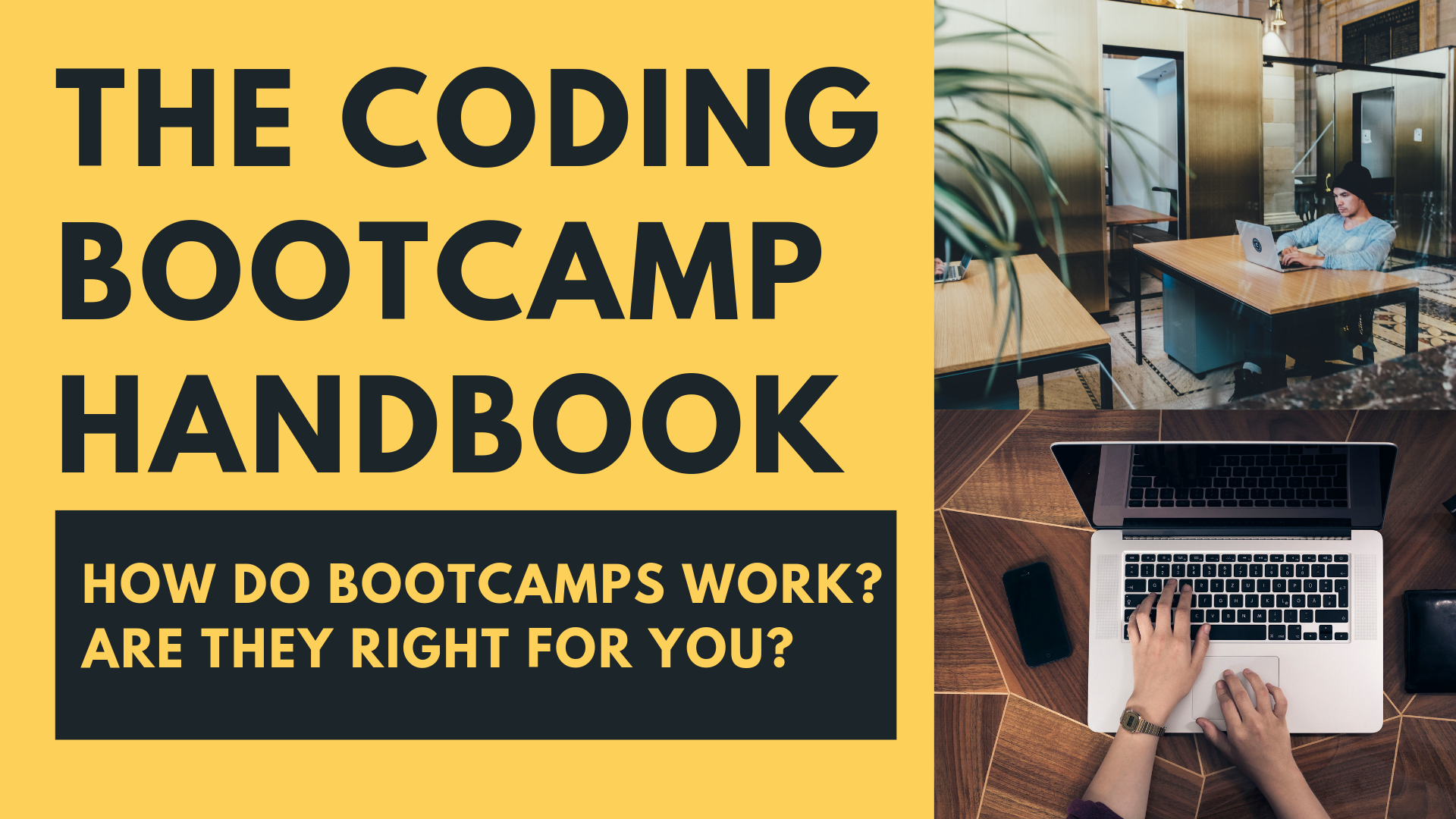Bootcamp Duration Variations

Coding bootcamps offer a condensed pathway into tech careers, but their duration varies significantly, impacting the learning experience and career trajectory. The length of a bootcamp is a crucial factor to consider when choosing a program, as it directly influences the depth of coverage and the overall intensity of the learning process.
Bootcamp lengths typically range from a few weeks to over six months, depending on several factors. These factors influence the curriculum’s intensity, the depth of the subject matter covered, and the overall learning objectives of the program. Full-time bootcamps tend to be shorter and more intensive, while part-time programs stretch the learning over a longer period.
Typical Bootcamp Durations and Program Structures, How long is a coding bootcamp
The duration of a coding bootcamp is largely determined by its learning objectives and the intensity of its curriculum. Full-time programs often compress the learning into a shorter timeframe, requiring a significant time commitment from students. Part-time bootcamps, conversely, spread the learning over a longer period, allowing for greater flexibility but demanding more sustained effort over time. Intensive bootcamps aim for rapid skill acquisition in a short period, typically requiring a higher level of prior knowledge or a strong work ethic.
| Program Type | Typical Duration | Daily/Weekly Commitment | Curriculum Intensity |
|---|---|---|---|
| Full-Time Intensive | 12-16 weeks | 40+ hours/week | High – fast-paced, immersive |
| Full-Time Standard | 16-24 weeks | 30-40 hours/week | Medium-High – balanced learning and projects |
| Part-Time | 24-52 weeks | 10-20 hours/week | Medium – allows for flexible scheduling |
| Self-Paced Online | Variable (months to years) | Variable (flexible hours) | Low to Medium – requires self-discipline |
Factors Influencing Bootcamp Length
Several key factors influence the duration of a coding bootcamp. Curriculum intensity directly impacts the learning timeline; a more comprehensive curriculum naturally requires more time. The specific learning objectives also play a role; a bootcamp focused on a single skill (like front-end development) might be shorter than one covering multiple areas (like full-stack development). Finally, the learning format – full-time versus part-time – significantly affects the program’s overall length. For instance, App Academy’s full-time immersive program is considerably shorter than their part-time offering. Similarly, General Assembly offers both full-time and part-time options with varying durations reflecting the differing time commitments.
Curriculum and its Influence on Length: How Long Is A Coding Bootcamp

The duration of a coding bootcamp is significantly impacted by the scope and depth of its curriculum. A comprehensive curriculum covering multiple languages and frameworks naturally requires more time than a specialized program focusing on a single technology. Factors such as the intensity of the learning experience and the level of student support also play a role, but the curriculum itself remains a primary determinant.
The breadth and depth of a coding bootcamp’s curriculum are inversely related to its duration in many cases. A bootcamp aiming for breadth, covering multiple languages and technologies, might be longer than one with a narrower, deeper focus. Conversely, a specialized bootcamp focusing intensely on a single skill set can often be completed in a shorter timeframe.
Curriculum Examples and Lengths
Several examples illustrate the relationship between curriculum scope and bootcamp duration. A full-stack web development bootcamp, encompassing front-end (HTML, CSS, JavaScript, React), back-end (Node.js, Python, databases), and DevOps principles, typically lasts 12-16 weeks. In contrast, a bootcamp specializing solely in data science using Python might be completed in 8-12 weeks, while a front-end focused bootcamp concentrating on React might run for 6-8 weeks. These variations reflect the differing amounts of material covered.
Comparison of Bootcamp Curricula: Breadth and Depth
Bootcamps vary considerably in their approach to curriculum design. Some prioritize breadth, exposing students to a wide range of technologies and concepts. Others favor depth, focusing intensely on mastering a specific skill set or technology stack. A broad curriculum might cover multiple programming languages, frameworks, and databases, offering a versatile skillset but potentially sacrificing in-depth expertise in any single area. A deep curriculum, on the other hand, might delve deeply into a single language or framework, providing students with advanced skills in that specific domain but potentially limiting their adaptability to other technologies.
Curriculum Scope and Program Duration
| Curriculum Focus | Languages/Technologies Covered | Depth of Coverage | Typical Duration (Weeks) |
|---|---|---|---|
| Full-Stack Web Development | HTML, CSS, JavaScript, React, Node.js, SQL, Python (possibly) | Moderate | 12-16 |
| Data Science | Python, R, SQL, Data Visualization Libraries | High (within Data Science domain) | 8-12 |
| Front-End Web Development (React) | JavaScript, React, Redux, HTML, CSS | High (within Front-End domain) | 6-8 |
| Back-End Web Development (Node.js) | JavaScript, Node.js, Express.js, MongoDB | High (within Back-End domain) | 8-10 |
Specialized Bootcamp Length Variations
The duration of a specialized bootcamp is often shorter than that of a more comprehensive program. For example, a bootcamp dedicated to learning Python for data analysis might last 8-10 weeks, whereas a bootcamp covering full-stack web development, including front-end and back-end technologies, might extend to 12-16 weeks. Similarly, a bootcamp focused exclusively on Android development might be completed in 10-12 weeks, compared to a longer program incorporating iOS development as well. This difference is directly attributable to the reduced scope of the specialized curriculum.
Post-Bootcamp Considerations

Successfully completing a coding bootcamp is a significant achievement, but it marks the beginning of a new phase: securing a job in the tech industry. This transition requires dedication, strategic planning, and a considerable time investment beyond the bootcamp itself. The post-bootcamp period is crucial for transforming acquired skills into a successful career.
The time commitment required after a coding bootcamp is substantial and varies depending on individual circumstances and job market conditions. It’s not simply a matter of applying for jobs; it’s a multifaceted process that demands focused effort and resourcefulness. Factors such as the strength of your portfolio, your networking efforts, and the overall competitiveness of the job market all play a role in determining the duration of your job search.
Job Search Time Commitment
Securing a developer role typically requires a dedicated job search effort. This involves crafting compelling resumes and cover letters tailored to specific job descriptions, actively applying to numerous positions, and preparing for technical interviews. Expect to spend a significant portion of your day, potentially several hours daily, on this process. Realistic timelines range from several weeks to several months, depending on factors like location, specialization, and experience. For example, a recent graduate specializing in front-end development in a competitive city like San Francisco might spend three months actively searching, while a back-end developer in a smaller city with less competition might find a role within a few weeks.
Portfolio Development Time Requirements
A strong portfolio is essential for showcasing your coding skills and landing a job. It’s more than just a collection of projects; it’s a curated demonstration of your abilities, problem-solving skills, and coding style. Building a compelling portfolio requires time and effort. Each project involves planning, coding, testing, and refining. Depending on the complexity of the projects, you should allocate several hours per project, and aim for at least 3-5 substantial projects to highlight your range of skills. This process could easily consume 20-40 hours or more over several weeks. For instance, a full-stack project involving a database, API, and user interface might take 40-60 hours to complete to a professional standard.
Continued Learning and Skill Enhancement
The tech industry is constantly evolving. Continued learning is not optional; it’s a necessity for staying competitive and relevant. This involves consistently updating your skills, exploring new technologies, and engaging with the broader developer community. Allocating time for ongoing learning is crucial for long-term career success. This might involve dedicating 5-10 hours per week to online courses, tutorials, or personal projects to stay current with industry trends and expand your skillset. For example, dedicating time to learning a new framework like React or mastering a specific database system like PostgreSQL is a vital ongoing commitment.
Post-Bootcamp Timeline
The following is a sample timeline outlining typical activities and time commitments after a coding bootcamp. This is a guideline and may vary based on individual circumstances.
- Weeks 1-4: Intensive job application phase. Focus on resume/cover letter optimization, networking, and applying to numerous positions. (20-30 hours/week)
- Weeks 5-8: Portfolio enhancement and continued learning. Refine existing projects, develop new ones, and engage in online learning. (15-20 hours/week, with some job applications continuing)
- Weeks 9-12: Interview preparation and follow-up. Practice technical interview questions, refine your communication skills, and actively follow up on applications. (10-15 hours/week, with continued learning)
- Ongoing: Continuous learning and skill enhancement. Stay updated with industry trends and expand your skillset. (5-10 hours/week)


Tim Redaksi